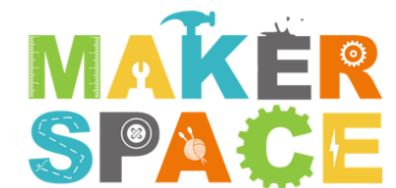Makerspaces - The Hidden Business Gem?
Saturday 16th May 2020 Dave Sharp Technology
Historically, makerspaces were more hobby/craft like in nature but have evolved to include the new digital making disciplines such as 3-D design and printing, digital fabrication (sometimes called “FabLabs”). Computer programming connected to the makerspace scene includes electronic hardware like the Arduino microcontroller.
Makerspaces have also recognised that there are commercial opportunities accessible to the members through some of the open source licence agreement frameworks:
- Licensing digital designs and how-to instructions under a Creative Commons or similar copyright license;
- Openly sharing those designs through cloud-based maker websites.
Licenses permit the sharing of the work with the correct crediting of the creator and will normally permit adaption of the work for other purposes.
Maker Faires
These are events where makers gather together to exhibit their creations, share expertise and advice, collabrate and provide a window for the public to experience the whole maker experience. These are educational and enjoyable events for all ages.
Economic Impact
Makerspaces contribute significantly to economic development by providing ecosystems in which individuals can learn the enterprise level skills needed in today’s manufacturing sector. They serve as an introduction to skilled trades through the use of tools as an educational and leisure pursuit.
Makerspaces are an unpressured and safe environment for individuals of all ages to modern, advanced tools. This is a requirement that mainstream education can now not service. In doing so, makerspaces reinvigorate the mechanical arts on a community level but also act as a conduit for advanced manufactuing skills development.
By providing local easy access to high tech or high-cost equipment, a collaborative knowledge sharing environment, low-risk and low-cost product development and low-cost co-working spaces, makerspaces are exceptional environments for developing cultures of innovation and small business
growth.
Consumers seeking products customised to their individual requirements, makerspaces enable community manufacturers to be extremely agile, creative and efficient. Small companies accessing makerspaces obtain affordable access to high tech equipment and gain strength through the collaborative work environment. Reducing barriers for entry to a new market and facilitate learning, prototyping, manufacturing and the commercialisation of products becomes realistic for creative businesses in partnerships with makerspaces. Larger manufacturers access makerspaces to create products more rapidly and incorporate ideas from customers.
Makerspaces and Education
Makerspaces are beginning to partner with educational institutions to provide students with the practical skills needed to succeed in today’s workforce. Studies show students engaged in active learning activities score better on examinations and are less likely to fail in science, technology, engineering and math (STEM) courses.
Makerspaces Driving Cluster Development
Finally, makerspaces are helping cities diversify their industries, such as oil and gas or auto
manufacturing, while simultaneously facilitating collaboration between traditionally unrelated industries. There is no limit to the types of ideas and products generated from a makerspace.
Next Article
While the activity of playing video games can be seen as trivial and frivolous, the industry around developing, and publishing video games is now big business. There are 2.7 Billion video game players around the world, one third of the population of the planet, creating global revenues of £160Billion by the end of 2020, and the sector is still growing. A compound annual growth rate of 12% is forecast between 2020 and 2025, is an indication that there is a lot of room for the sector to continue to grow.
Previous Article
Entreprenurism is a massive mental strain in almost every regard. The challenge around developing the product or service, financing the development, what technology to use finding the right employees, procurement etc. is just massive. "Doing the right thing" in an ethical sense sometimes will seem like a very low priority, so what stance can entrepreneurs take to get some ethics into the company culture early on?